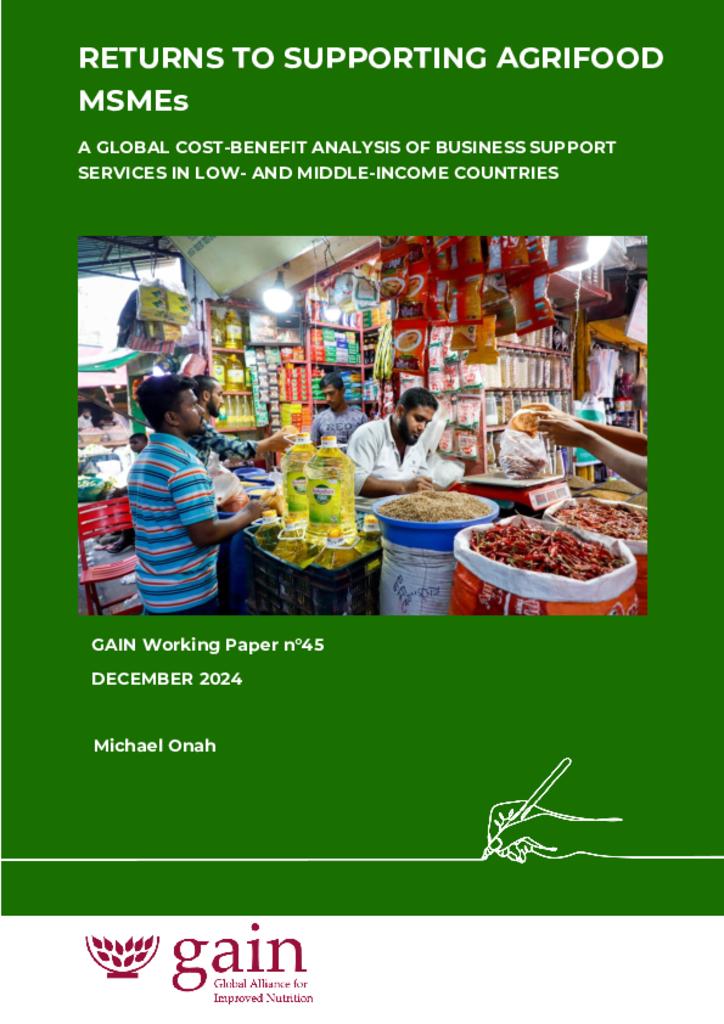Micro, small, and medium enterprises (MSMEs) are the backbone of economic development in many low- and middle-income countries (LMICs). Their role is particularly important since they are estimated to make up the vast majority of food system businesses and play a critical role in achieving food security and supporting nutrition, as well as providing employment. To function optimally, business-support programmes and interventions are often developed based on the assumption that institutional constraints impede MSMEs from maximising their potential. Support services can be broadly grouped into financial assistance (e.g., grants, loans) and technical assistance (e.g., business development services, training, networking).
There is evidence of positive impacts from implementing some of these interventions but also important evidence gaps, including the returns to investing in MSME business support services. This paper examined the benefit-cost-ratios from investing in six broad business support interventions for agrifood MSMEs across 90 LMICs in six World Bank regions. These interventions include: (1) a low-cost intensive mentoring and training for female managers of micro and small enterprises; (2) low-cost business development services for agrifood MSMEs; (3) peer-to-peer networking; (4) inter-firm relationship building and networking; (5) matching grants for obtaining management consulting services; and (6) grants for capital expenditure complemented with technical assistance. Benefits vary by firm size and across regions, with the sixth intervention, in particular, showing lower average benefit-to-cost for many firm types. Overall, however, the results indicate that most interventions produced enough benefits in improved sales to offset implementation costs, suggesting that most of the interventions can be economically viable under the right conditions, with net positive returns.
